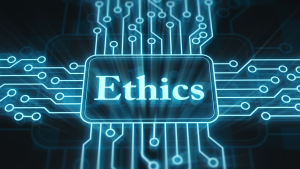AI Ethics and Governance: Building Secure and Responsible AI Systems
Artificial Intelligence (AI) is transforming industries worldwide. From healthcare to finance, AI-powered systems are increasing efficiency, improving decision-making, and unlocking new opportunities. However, with these advancements come significant ethical challenges. Ensuring that AI operates fairly, transparently, and safely is crucial for building trust and preventing harm. This is where AI ethics and governance consultants play a vital role. They develop ethical frameworks and ensure compliance with laws and standards, helping organizations create secure AI systems that align with societal values.
The Importance of AI Ethics
AI ethics refers to the principles and guidelines that govern the responsible use of AI. It addresses issues like bias, transparency, accountability, privacy, and societal impact. Without proper ethical considerations, AI can lead to unfair outcomes, discrimination, or even security risks. Ethical AI ensures fairness, builds trust, and prevents harmful consequences.

For example, AI-driven hiring systems must ensure unbiased candidate selection. Without proper oversight, these systems may inadvertently favor certain demographics, leading to discrimination. Similarly, AI in healthcare must maintain patient confidentiality and ensure unbiased treatment recommendations.
AI ethics is not just about fairness but also about security. Malicious AI applications can manipulate data, spread misinformation, or be exploited for cyberattacks. AI ethics consultants help mitigate these risks by ensuring that AI development aligns with best practices and legal standards.
The Role of an AI Ethics and Governance Consultant
An AI ethics and governance consultant plays a crucial role in guiding organizations toward responsible AI use. Their responsibilities include:
- Identifying Ethical Risks
- Assess AI projects for potential ethical risks, such as biased data, lack of transparency, or misuse.
- Evaluate the impact of AI on different stakeholders, ensuring fairness and accountability.
- Developing Ethical Guidelines
- Create policies and guidelines to ensure AI operates fairly, transparently, and responsibly.
- Define ethical principles for AI development, including fairness, accountability, and non-discrimination.
- Ensuring Regulatory Compliance
- Keep up with evolving AI regulations and ensure AI systems comply with legal standards.
- Advise organizations on ethical AI practices aligned with national and international laws.
- Implementing Governance Frameworks
- Establish governance structures for overseeing AI development and deployment.
- Develop internal review processes to ensure AI ethics are maintained throughout the AI lifecycle.
- Training and Awareness
- Educate developers, business leaders, and stakeholders on AI ethics.
- Promote ethical awareness within organizations, encouraging responsible AI practices.
Developing Ethical Frameworks for Secure AI Systems
Creating ethical frameworks for AI involves structured approaches to ensure fairness and accountability. The process includes:
- Stakeholder Engagement
- Engage with diverse stakeholders, including developers, users, and affected communities.
- Understand societal concerns, legal implications, and industry best practices.
- Defining Ethical Principles
- Establish ethical principles such as transparency, accountability, fairness, and privacy.
- Ensure AI systems align with human rights and societal values.
- Risk Assessment and Mitigation
- Identify potential risks associated with AI, including data privacy concerns and algorithmic bias.
- Develop strategies to minimize risks, such as bias detection tools and fairness audits.
- Policy Development
- Draft policies and guidelines that enforce ethical AI practices.
- Ensure policies address compliance, bias mitigation, transparency, and data security.
- Monitoring and Evaluation
- Continuously monitor AI systems for ethical compliance.
- Implement review mechanisms to assess AI fairness, security, and accountability.
Ensuring Compliance in AI Systems
Compliance in AI systems means adhering to regulations and ethical standards throughout the AI lifecycle. AI ethics and governance consultants ensure compliance by:
- Aligning AI Systems with Regulations
- Ensure AI solutions comply with data protection laws (such as GDPR and CCPA).
- Adhere to industry-specific regulations, such as HIPAA for healthcare AI applications.
- Implementing Risk Management Practices
- Conduct regular audits to identify potential risks.
- Develop risk-mitigation strategies to prevent ethical and security breaches.
- Building Transparent AI Systems
- Ensure AI decision-making processes are explainable and auditable.
- Promote transparency by allowing users to understand how AI systems make decisions.
- Fostering Accountability
- Assign responsibility for AI decisions to specific teams or individuals.
- Develop clear accountability measures for AI system errors or biases.
- Encouraging Ethical AI Culture
- Train employees on AI ethics and responsible AI development.
- Promote a company-wide commitment to ethical AI principles.
Challenges in AI Ethics and Governance
Despite efforts to promote AI ethics, several challenges persist:
- Rapid AI Advancements
- AI technology evolves faster than regulatory frameworks, making it challenging to enforce ethical guidelines.
- Complexity of AI Systems
- Some AI models, especially deep learning systems, operate like “black boxes,” making it difficult to interpret their decisions.
- Bias and Fairness Issues
- AI systems trained on biased data can perpetuate discrimination.
- Ensuring diverse and representative datasets is a significant challenge.
- Global Differences in Ethical Standards
- AI regulations and ethical norms vary across countries, complicating international AI governance.
- Balancing Innovation and Ethics
- Striking a balance between ethical AI development and business innovation can be difficult.
The Future of AI Ethics and Governance
The importance of AI ethics will continue to grow as AI becomes more integrated into society. Future developments in AI ethics and governance may include:
- International Collaboration on AI Ethics
- Governments and organizations will work together to create global AI ethical standards.
- Cross-border cooperation will help address ethical concerns in multinational AI applications.
- Stronger Ethical Frameworks
- Enhanced AI ethics frameworks will emerge to handle advanced AI capabilities.
- Ethical considerations will expand to include new AI applications, such as quantum AI and AI-powered robotics.
- Public Participation in AI Ethics Discussions
- Governments and companies will involve the public in shaping AI ethics policies.
- Greater transparency in AI development will foster public trust.
- AI Systems Learning from Ethical Evaluations
- AI models will incorporate ethical learning mechanisms to adjust their behavior based on ethical evaluations.
AI ethics and governance consultants play an essential role in shaping the future of AI. By developing ethical frameworks and ensuring compliance, they help create secure AI systems that align with legal standards and societal values. As AI technology continues to evolve, the need for responsible AI development will become even more critical. Organizations must prioritize AI ethics to foster trust, prevent harm, and maximize AI’s potential for positive impact.
By addressing ethical concerns, promoting transparency, and ensuring compliance, AI ethics consultants contribute to a future where AI serves humanity responsibly and ethically. The integration of AI into various industries must be guided by ethical considerations, ensuring that innovation aligns with security, fairness, and accountability. The work of AI ethics consultants will continue to shape the future of AI, making it safer and more beneficial for everyone.



